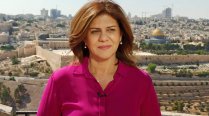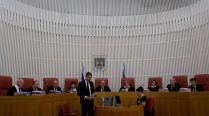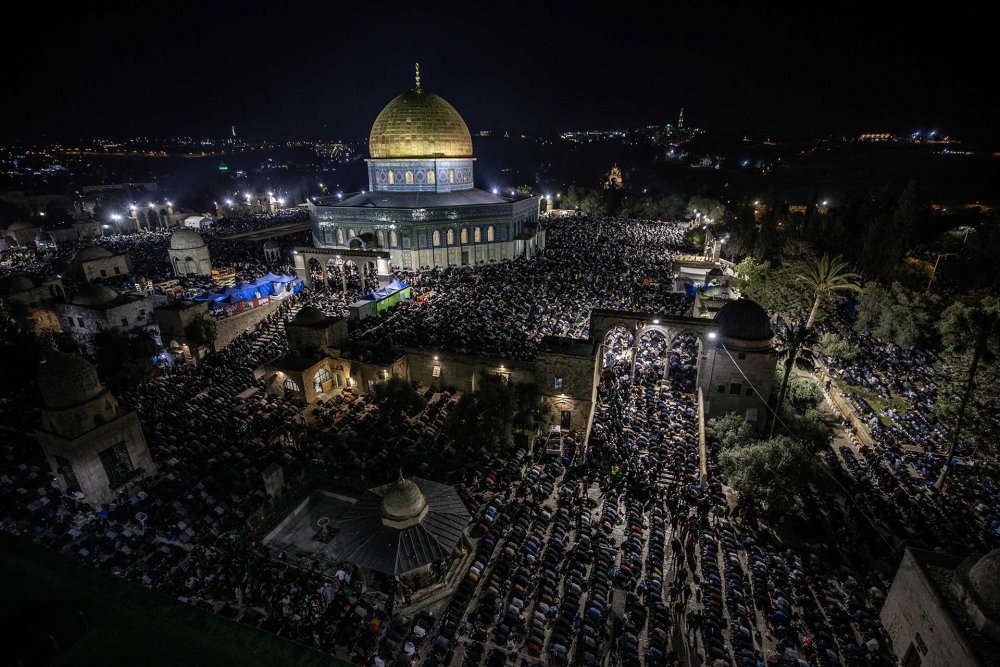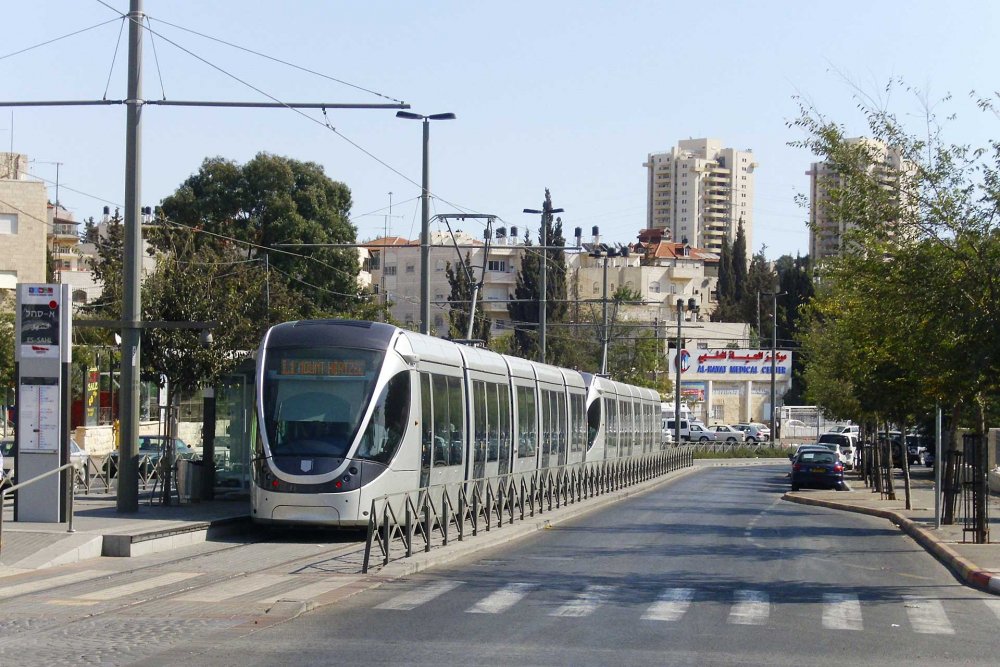When the Israeli military killed Shireen Abu Akleh in May, I was in shock and deeply sad. I needed to be with others to process all the grief I was feeling, so I decided to attend her funeral in Jerusalem. But fear took over and I thought of all the ways the Israelis might punish me as they have done to so many. The authorities could accuse me of going to an illegal political event. I spoke to a few friends who felt the same, so we decided to support each other and go as a group. We heard the Israeli police had attacked Shireen’s coffin and pallbearers at St. Joseph’s Hospital, and that the police had closed off access in and out of the hospital. Therefore, we thought it best to go to the church in the Old City and join her funeral procession. The sun was beating down on us as we waited and waited for the police to allow Shireen’s coffin to leave the hospital. The streets around the church were packed with mourners. The clear sky was full of planes and drones, no doubt monitoring the situation on the ground and taking note of who was at the funeral. Finally, her coffin arrived, but we did not see police around the church. Later, we would see a dozen or so foreign dignitaries leaving the church and wondered if that was why the Israeli authorities kept their distance and did not disrupt the funeral as they had done at the hospital.
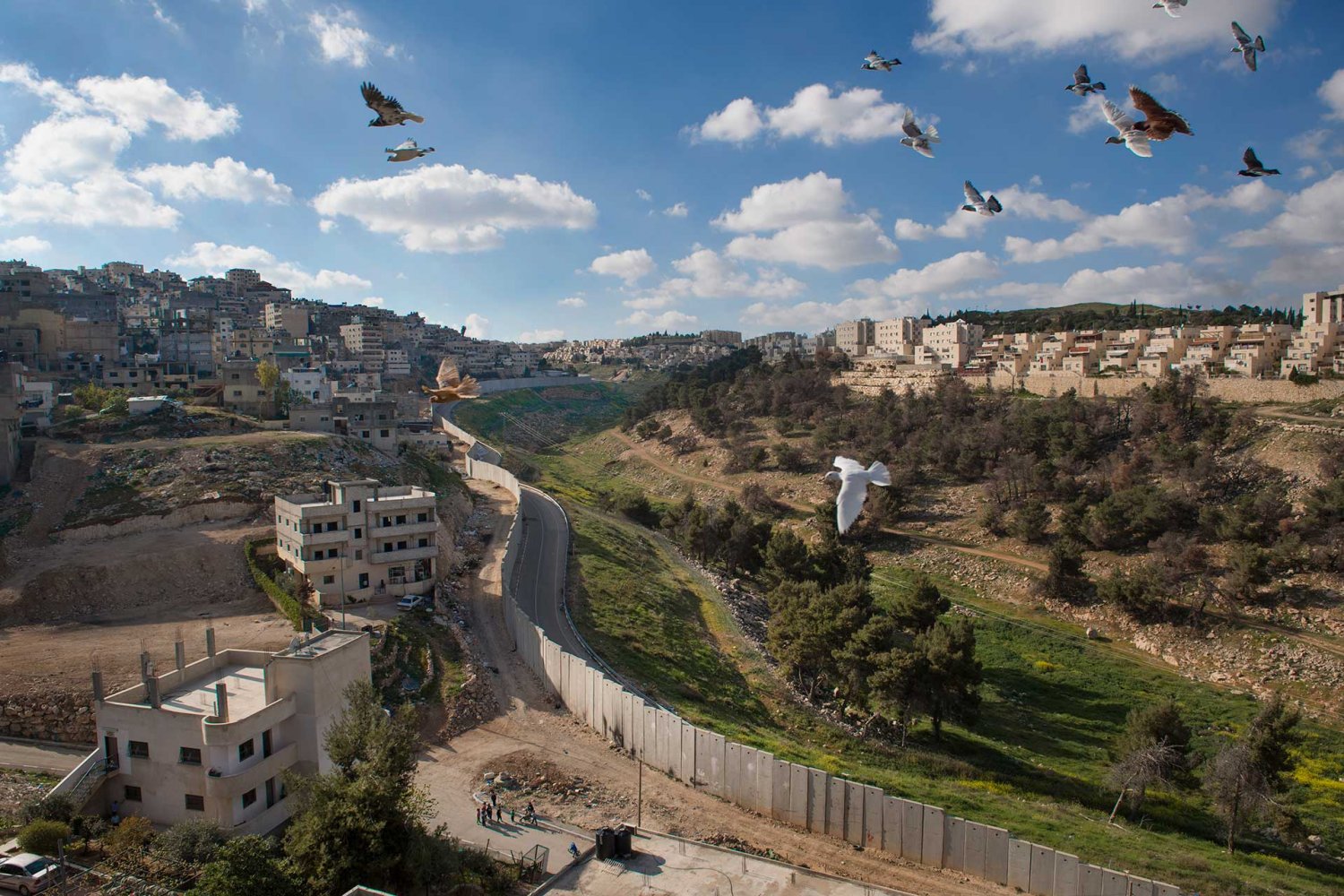
Credit:
Linda Davidson/The Washington Post via Getty Images
Reflections of a Returning Daughter of Jerusalem
Snapshot
This autobiographical essay was originally published in Jerusalem Quarterly, no. 91 (Autumn 2022): 160–65. It is reproduced here verbatim by permission from the publisher.
As we started walking behind the funeral procession to the cemetery, we began to see dozens and dozens of Israeli soldiers and police officers. An older Palestinian man near me yelled “Filastin” and raised the victory symbol in front of a group of soldiers. My heart nearly stopped from fear over the possibility of them attacking us, since their fuses are so short when it comes to encounters with Palestinians. I closed my eyes for a moment, bracing for the worst. Instead, an Israeli soldier said angrily in rudimentary Arabic, “Shu Filastin? Filastin mat” (What Palestine? Palestine is dead). The comment had an oddly calming effect on me. I looked at her and thought, how can you say Palestine is dead with all these Palestinians around you? All of Palestine—those of us in historic Palestine and those in the diaspora—was mourning and honoring the voice of our people. I had nightmares the next few weeks, imagining the Israeli military would arrest me for attending the funeral. The fear of punishment and loss dispossesses us, but we still resist and find comfort in spaces within our homeland, especially when we collectively gather and make our presence known.
I was born in Jerusalem before the first intifada, but once the uprising began gaining traction and the Israeli military began responding violently, my father moved our family to the United States to avoid the political problems of the region. He did not want us to experience the political difficulties he endured as a child in post-Nakba Jerusalem, in the years immediately following the creation of the Israeli state. But I grew up longing for Palestine and wishing I could breathe her air and walk her streets. In 2002, I was finally able to return when my extended family there bought me a ticket as a high school graduation gift. I spent six joyful weeks with my aunts and cousins, forging new relationships, exploring the country, praying in al-Aqsa Mosque, and learning more about my family’s history. I left yearning for more. Over the years, I made many trips back to the homeland, exploring and soaking up as much of it as I could before leaving again. But these trips were never enough for me.
In 2019, I made the decision to move back to Jerusalem and live in my family’s village: Shu‘fat, 10 minutes north of the Old City. I had been preparing for this move for at least two years. To live in the city legally, I needed to regain my Israeli permanent residency status. I tried to learn as much as I could about the topic, but it is a black hole, and no one actually fully knows how the Israeli Ministry of Interior makes decisions about Palestinians receiving permanent residency. One can only submit all the paperwork they ask for and pray that the government worker handling the case is having a good day. Since I left Jerusalem as a child, the Israeli government revoked my residency and I had to apply to have it reinstated—an invasive, time-consuming, and expensive process. Since 1967, Israel has revoked or not renewed the residency of almost fifteen thousand Palestinian Jerusalemites; despite the status of “permanent” residency, holders are always at risk of revocation or nonrenewal.1
I knew that I would encounter numerous difficulties moving to Jerusalem from the United States, mainly living under a military occupation with soldiers and guns everywhere, but also because of the cumbersome Israeli bureaucracy, my lack of Hebrew-language skills, and possibly never being allowed to reclaim my residency. However, I felt hopeful when I learned in March 2017 that the Israeli Supreme Court ordered the Ministry of Interior to reinstate Akram Abd al-Haq’s Israeli permanent residency.2 Abd al-Haq had been fighting for decades in the Israeli courts to have his residency reinstated; his case was similar to mine, in that he left Jerusalem as a child and obtained a so-called foreign passport as a minor. Leaving the country for more than seven years or obtaining another citizenship are just two ways among many that the Israeli government uses to deny Palestinians residency. The justices ruling on his case indicated that Palestinian Jerusalemites hold a special status as “native residents.”3 This proved to be a game changer for me.
For decades the Israeli settler-colonial project has worked to dispossess us of our homeland by any means possible, for example, by forcing someone like me—a native person, born in Jerusalem and able to trace my lineage in the country going back centuries —to prove to Israeli Ministry of Interior workers that I have a right to live in my ancestral homeland. The process of getting my residency involved more fear than I had ever imagined or experienced. I lived in fear of one misstep or misunderstanding leading the authorities to revoke my residency and deport me. Despite the difficulties and ever-present fear, I viewed returning to Palestine and obtaining my residency as a prime example of sumud, or perseverance in staying on the land no matter what. My return and holding my ground is possibly the most Palestinian thing I could do to confront the settler-colonial project.
We Palestinians in Jerusalem experience Zionist settler colonialism in specific and incendiary ways, reminded every day of the project’s goal to dispossess us of our land, culture, language, dignity, sense of belonging, and security. The different forms of dispossession—physical, emotional, and psychological—we experience invade our day-to-day lives by limiting our housing options, appropriating our land for so-called developments, and not providing adequate infrastructure, public spaces, or services for our neighborhoods. Instead, we experience heavily armed soldiers on public transportation, intrusive police stations, and surveillance and officers at every turn. As a returning native, my greatest challenge in Palestine is how to manage my fear and not allow it to consume my life.
Due to my precarious residency issue, I live in fear of doing anything that might lead to the revocation of my residency. Despite living and remaining in the country for nearly four years, I have only been granted temporary residency. I will still need to reapply every year for the next two years before the minister of interior grants me permanent residency, which I then must renew every five years. I think twice, three times, before I do anything that could be misinterpreted or misconstrued by the Israeli authorities. When I first moved to Palestine, I would wake up in a panic at least twice a week thinking the Israeli authorities were going to tear down my door and arrest me. It was not rational, I knew I had done nothing wrong, but fear had seeped deep into my subconscious.
In addition to my residency issues, living in Shu‘fat has not been a walk in the park. Coming to live in a space where I was only known through my parents was difficult and the adjustment period was painful. So many people were curious about why I would give up the United States to live in Palestine. When I explained I wanted to live in my country, I received blank looks from most people. My return was not easy for people to understand or process, which affected how I was treated. I may technically be bint al-balad (a daughter of the country), but my life did not make sense to them. I came back to Palestine because I wanted to, not because I married someone local or was taking care of elderly relatives. I was a single woman living fully independently, including having my own place. As a woman, I experience patriarchal limitations wherever I am in the world. In Palestine, those limitations affected my everyday life. If I wanted to fix something in my house, I needed an uncle or male cousin to intervene on my behalf because I was ignored or cheated when I attempted to do it on my own. Since I am single and considered a “family responsibility,” my male cousins tried to control my movements and interactions. When I resisted their interference, they blamed my so-called bad behavior on my “foreign upbringing.” Eventually, we got used to each other, and while I still experience disrespect, people know I am not afraid to protect my boundaries. Ironically, people say I behave this way because I grew up in the United States, but khalti (my mother’s sister) told me I have always been protective of my space; even as a toddler in Shu‘fat: I was known as “the pincher” because if someone touched or picked me up against my will, I would pinch them until they left me alone.
While it may seem like difficulties abound in living in Jerusalem, there is also plenty of joy. I am surrounded by family in a way I never experienced: my aunts, uncles, and cousins are part of my daily life. We celebrate together, we grieve together, we comfort each other. Fear and tension follow us in Jerusalem and as a returning native I am learning to keep these feelings in check. We still manage to live and experience happiness within these conditions. For example, while Ramadan is usually a joyous month for those who observe, filled with community and family gatherings, in Jerusalem it is a tense time for Palestinians. During this month, the Israeli authorities dispossess us of experiencing any joy or happiness. There are almost daily confrontations between the occupation authorities and Palestinian youth in the Bab al-‘Amud area of the Old City. This space is one of the few communal places available to Palestinians where they can gather with friends and family. Over the last 15 years, the settler-colonial government has turned it into a sterile space by installing three watchtowers and doing away with all its uniquely Palestinian elements, such as the sellers lining the area leading to the gate and the elderly women selling fruits and vegetables.
In May, I decided to take my younger cousins—a couple of whom wear hijab—to the Old City after iftar (the break of the daytime Ramadan fast) to shop because one of our relatives was visiting from the United States. Since moving to Palestine in 2019, I have avoided the Old City during Ramadan because of all the problems and the fear of being in the wrong place at the wrong time. We walked around for a while, but so many shops were closed, very unlike the bustling activity I remember of the Old City during Ramadan prior to my move. The Old City has suffered in the last several years due to high Israeli taxation on shop owners, the lack of licenses to develop or improve shops, the Israeli push for Palestinian businesses to open shops away from the city (mostly in Beit Hanina and Shu‘fat), and more recently the lack of tourists due to COVID-19. After our walk, we decided to have some slushies on the steps in front of Bab al-‘Amud. People were walking, laughing, drinking tea/coffee, and taking pictures of the area, which was decorated with lights. Things were relevantly calm until the Israeli police decided to arrest a boy. We do not know what happened and we did not see what the boy had been doing before his arrest. We just saw a group of police officers attacking him mercilessly and dragging him to one of their watchtowers. I told the girls we should leave, but they begged me to stay, so we moved away from the watchtower. I saw a friend of mine on her way home from praying at al-Aqsa Mosque. We all had a good time together, but I was getting antsy and wanted to leave before a major confrontation erupted.
We made our way to the light rail stop near an ultra-Orthodox Jewish neighborhood and, after we bought tickets from the machine, I turned to find a soldier glaring with hate and aiming his rifle at us, and a light rail security guard blocking our way. I became so scared for my younger cousins, especially the ones obviously Muslim. I looked at the soldier and guard—both probably in their early twenties—and said in English, “What’s the problem? What happened?” The soldier just continued to look at me, but the guard started to stutter, perhaps surprised by my American accent, and said, “No, nothing is wrong. Everything is ok.” They both started to back away from us. It was not the first time that my American accent has served as protection.
The guard went away, but the soldier kept glaring at us from a distance. I told my cousins to stay near me and despite my fears of the soldier losing it—since we know Israeli soldiers are trigger happy when Palestinians are around—I kept my eyes on him and was ever so careful not to make any sudden movement. Even in this very small way, I did not want him to think he had power over me and could dispossess me of my joyful experience in my city with my family. Unlike me, my cousins grew up in Jerusalem and were accustomed to soldiers and guns everywhere. They were unfazed by what had transpired and continued to laugh and joke with each other. I did not grow up in an environment where I was in constant fear of attack for simply being who I am (except for the weeks following 9/11 in the United States). They were so happy by our little outing. Watching them brought back some of the joy that the Israeli soldier and security guard tried to deprive me of as a Palestinian.
As a returning daughter of Jerusalem, I have built a life based on my undeniable connection to the country. I belong to this place the same way generations of my ancestors have belonged. I live in the house built by my great-grandfather and where my father grew up. Every day I walk the same spaces where I took my first steps and ran after my mother, aunts, and grandmother. I occupy those spaces with confidence knowing I belong. I also work to instill a deep appreciation and respect for our homeland among the younger generation. On his numerous trips to Palestine, I share with my United States-based nephew stories about Palestinian history and culture. I explore different cities with him. His love for Palestine is one of my most important accomplishments and brings me immense joy. In these ways, I work to counter the dispossession I face existing within the Israeli settler-colonial project.
Rasmieyh Abdelnabi is a PhD candidate at George Mason University. Her dissertation examines Palestinian women’s work, political economy, and cultural continuity. She resides in her ancestral village of Shu‘fat in Jerusalem.
Notes
See “East Jerusalem,” B’Tselem, January 27, 2019; “East Jerusalem: Facts and Figures 2019,” Association for Civil Rights in Israel, accessed October 8, 2022; “Israel Passes Law to Strip Residency of Jerusalem’s Palestinians,” Al Jazeera, March 7, 2018; and Ariel David, “Who Are East Jerusalem’s ‘Permanent Residents’?” Haaretz, December 9, 2014.
“At the Supreme Court Sitting as the Court of Appeals in Administrative Affairs – AAA 3268/14 – Al-Haq v. Minister of Interior” [in Hebrew], Supreme Court of Israel, March 14, 2017.
"English Translation of At the Supreme Court Sitting as the Court of Appeals in Administrative Affairs – AAA 3268/14 – Al-Haq v. Minister of Interior,” HaMoked: Center for the Defence of the Individual, 15, accessed September 18, 2022.

